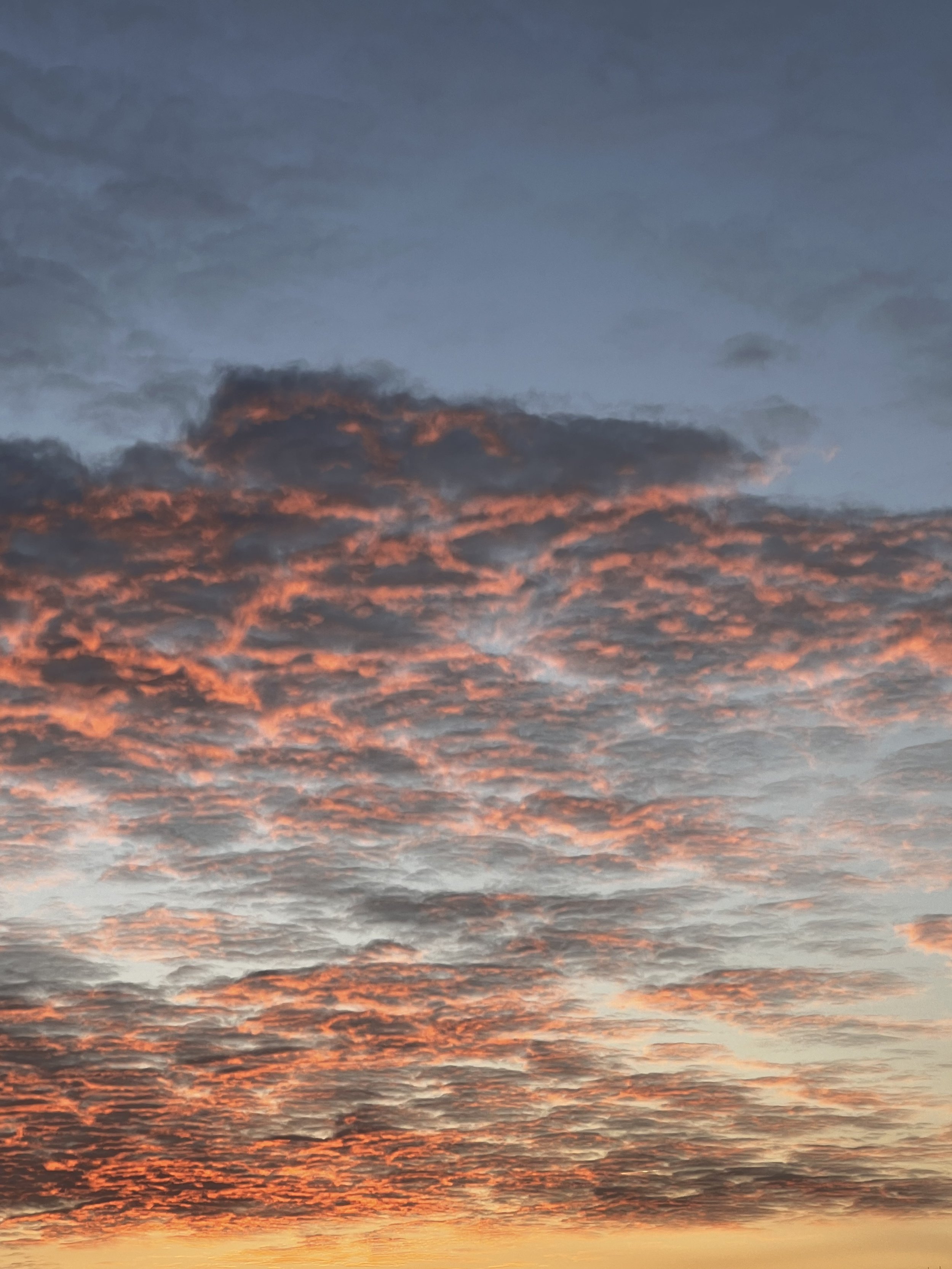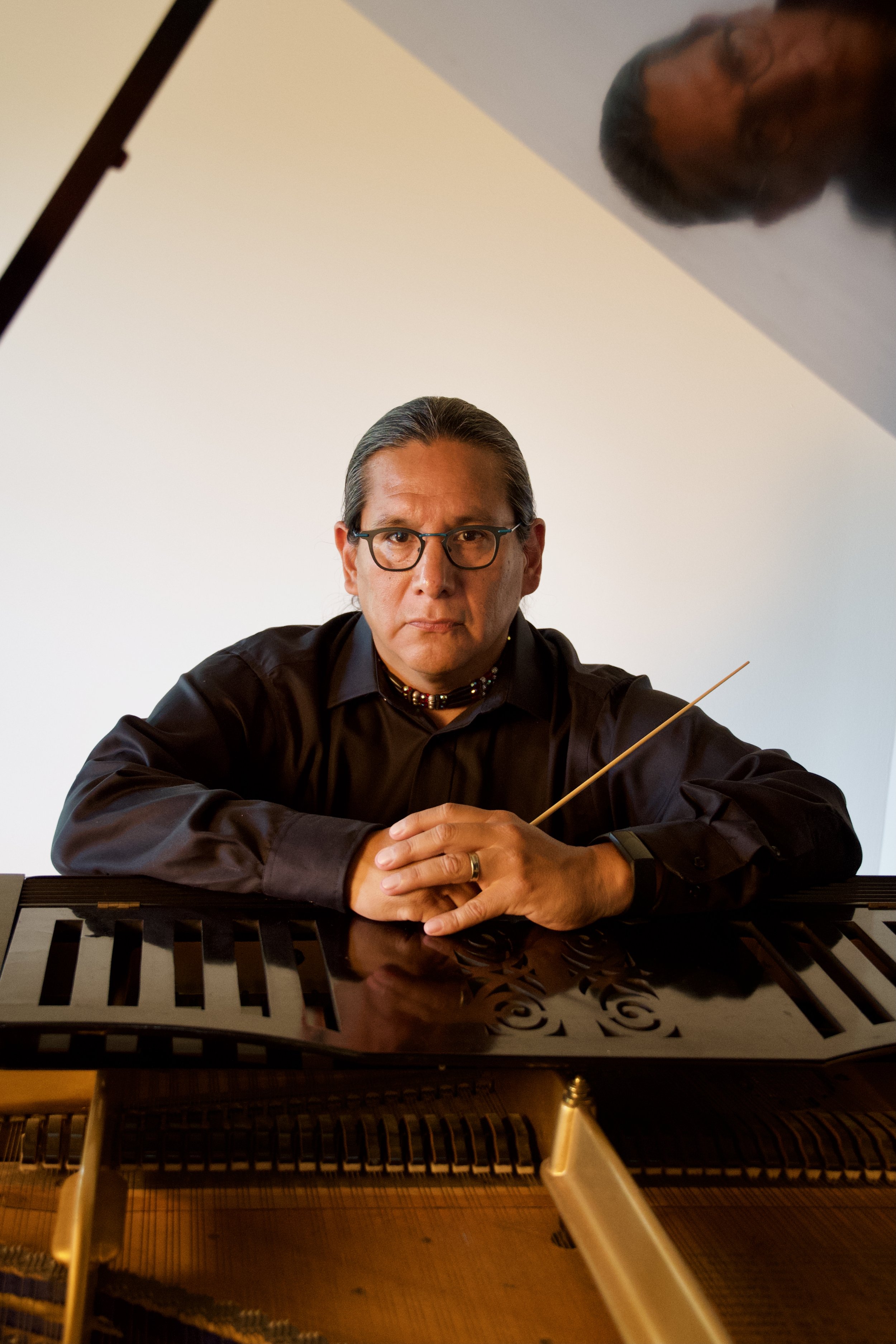
The North American Indigenous Songbook
In 2020, musicians became interested in finding composers whose music had been previously excluded and ignored in the concert halls. Singers, pianists, and teachers began contacting me about vocal music written by Native American and Indigenous composers. Although I knew music by Native Americans, none that I knew was for singers in the concert hall, namely, pieces that my students and colleagues could freely sing without fear of appropriation. The North American Indigenous Songbook will fill this void and create a new library of repertoire written by descendants of the first inhabitants of North America.
Our first round of commissions includes nine esteemed Native American composers. We are grateful to them for sharing their talents and expanding the repertoire of music composed by Native people.
-Timothy Long
Meet the Composers of Songbook #1
-

Timothy Archambault
Kichesipirini Algonquin First Nation and Metis Nation of Quebec.
Timothy Archambault is an Indigenous flute player, composer and architect based in Miami. His repertoire includes traditional Canadian Algonquin flute songs (recorded for the Smithsonian National Museum of the American Indian Archives in 2007), early 20th-century American Indian flute music, and new compositions by Indigenous composers. He has recorded with The Polish National Radio Symphony (Opus One), AM Records, Ideologic Organ, The Coast Orchestra, The Bronx Arts Ensemble (Lyrichord), The Queen’s Chamber Band (Lyrichord), The TICO Orchestra, The Oklahoma City University Philharmonic, Subtropics and received commissions from the Metropolitan Museum of Art, Agnes Etherington Art Centre at Queen’s University “Soundings: An Exhibition in Five Parts”, National Gallery of Art East Building and the Winterville Mounds Association. He is a Hereditary Senator of the Kichesipirini Algonquin First Nation, a member of the Métis Nation of Quebec, and First Nations Composer Initiative.
Headshot by CYJO
-

Raven Chacon
Diné (Navajo)
Raven Chacon is a Pulitzer Prize–winning composer, performer, and installation artist from Fort Defiance, Navajo Nation. As a solo artist, collaborator, and a member of Postcommodity from 2009 to 2018, Chacon has exhibited, performed, or had works performed at the Los Angeles County Museum of Art; The Renaissance Society, Chicago; San Francisco Electronic Music Festival; REDCAT, Los Angeles; Vancouver Art Gallery; Haus der Kulturen der Welt, Berlin; Borealis Festival, Seattle; SITE Santa Fe; Chaco Canyon, New Mexico; Ende Tymes Festival, New York; The Kennedy Center, Washington, D.C.; Whitney Biennial, New York; documenta 14, Athens and Kassel; Carnegie International, and Carnegie Museum of Art, Pittsburgh.
Since 2004, he has mentored more than three hundred Native high school composers in writing new string quartets for the Native American Composer Apprentice Project (NACAP). Chacon is the recipient of a United States Artists Fellowship, a Creative Capital Award, Native Arts and Cultures Foundation Artist Fellowship, the American Academy’s
Berlin Prize, the Bemis Center’s Ree Kaneko Award, and the Pew Center for Arts & Heritage’s Fellowship-in-Residence.
-

Connor Chee
Navajo Nation
Navajo pianist and composer Connor Chee is known for combining his classical piano training with his Native American heritage. A graduate of the Eastman School of Music and the University of Cincinnati’s College-Conservatory of Music, Chee’s music is inspired by traditional Navajo chants, songs, and culture.
Chee has released 4 studio albums of original pieces and piano transcriptions of Navajo music. The Navajo Piano won Best Instrumental Recording at the 16th Annual Native American Music Awards, and his piece “Beginnings” won Best New Age Song.
Chee’s 2020 release, Scenes from Dinétah, features piano pieces written about elements of Navajo life and culture. It was accompanied by the release of several music videos filmed on the Navajo reservation.
Chee's 2021 release, The Navajo Piano (Revisited), features new recordings of his original 15 compositions from 2014, as well as recordings of the traditional songs that inspired them.
-

Charles Shadle
Choctaw Nation of Oklahoma
Charles Shadle (b.1960, Ardmore OK) teaches composition, music theory, and music history at the Massachusetts Institute of Technology where he serves as Senior Lecturer in Music, and as Theory Coordinator. He was educated at the University of Colorado, Tulane University, and Brandeis University, where he received his Ph.D. in Composition and Theory, and counts among his teachers Cecil Effinger, Richard Toensing, Barbara Jazwinsky, Yehudi Wyner, Edward Cohen, Harold Shapero, and Eloise Ristad.
Dr. Shadle’s catalogue includes chamber music, four operas, four symphonies, six film scores for the National Film Preservation Foundation, and numerous choral pieces and songs. He is an enrolled member of the Choctaw Nation of Oklahoma. This heritage is reflected in works ranging from the large-scaled Oklahoma Choctaw Cycle (Limestone Gap, Red Cedar, and The Old Place) for chamber ensemble, to the short and accessible Choctaw Animals piano pieces recently made available by MIT: (https://shass.mit.edu/news/news-2021-choctaw-animals-mit-composer-charles-shadle)
Headshot by Kyle Hoepner
-

Dawn Ierihó:kwats Avery
Kaniènkéha descent
Dawn Avery, composer, cellist, vocalist, educator and GRAMMY nominated performer has worked with musical luminaries Luciano Pavarotti, Sting, John Cale, R. Carlos Nakai, Joanne Shenandoah, John Cage, Grover Washington, and more. Her work infuses elements of sacred and world music often garnered from her study and practice of spiritual practices from around the world. She composes as a singer songwriter in a variety of styles: downtempo, mystic pop, film, theatre and classical. Avery has collected awards for her compositions from Duke University, the Ford Foundation's Indigenous Knowledge, Expressive Culture grant program (of the American Composers Forum), the National Museum of the American Indian, Native American Music Award nomination, Meet the Composer, American Dance Festival, and several Global Music Awards. Her music has been performed in venues around the world, on radio, television and film including interviews with Native America Calling, NPR, and the CBC. Of Mohawk descent, she participates in Longhouse ceremonies and is dedicated to Indigenizing composition and performance, and to the of our future generations.
-

Timothy Long
Muscogee, Thlopthlocco, and Choctaw descent
Timothy Long is a pianist and conductor of Muscogee, Thlopthlocco, and Choctaw descent who is Music Director of Opera at the Eastman School of Music. He was assistant conductor for three years at the Brooklyn Philharmonic and was subsequently named an associate conductor at the New York City Opera for two seasons.Tim’s training as a pianist and multi-instrumentalist led to conducting engagements with such companies such as Boston Lyric Opera, Wolf Trap Opera, Opera Colorado, Utah Opera, Tulsa Opera, Opera Theatre of Saint Louis, The Juilliard School, Yale Opera, the Oklahoma City Philharmonic, the Oregon Bach Festival Orchestra, the Prague Summer Nights Festival Orchestra, the Trondheim Sinfonietta, and off-Broadway with The New Group. Tim has been on grant panels for the National Endowment for the Arts, Opera America, American Lyric Theater, and the Urban Artist Initiative/NYC. He is an Associate Professor at the Eastman School of Music.
-

R. Carlos Nakai
Ute-Navajo
Of Navajo-Ute heritage, R. Carlos Nakai is the world’s premier performer of the Native American flute. Originally trained in classical trumpet and music theory, Nakai was given a traditional cedar flute as a gift and challenged to see what he could do with it.
Nakai began playing the traditional Native American flute in the early 1980’s and has released more than 50 albums in his career (with 40 on the Canyon Records label).
While well grounded in the traditional uses of the flute, Nakai has explored new musical settings including new age, world beat, jazz and classical.
R. Carlos has earned eleven Grammy nominations and 10 NAMA awards, a Governor’s Arts Award and an honorary doctorate from NAU.
-

Martha Redbone
Eastern Cherokee/Choctaw/African American descent
Martha Redbone is a vocalist/songwriter/composer/educator, known for her music gumbo of folk, blues and gospel from her childhood in coal country Harlan County, Kentucky infused with the eclectic grit of pre-gentrified Brooklyn. Inheriting the powerful vocal range of her gospel-singing African American father and the resilient spirit of her mother’s southeastern Cherokee/Choctaw culture and heritage, Redbone broadens the boundaries of American Roots music. With songs and storytelling of her experience as a Native/African American woman and mother navigating in the new millennium, Redbone sings of social justice, connecting cultures, and celebrating the human spirit. Album “The Garden of Love-Songs of William Blake” - “a brilliant collision of cultures” (New Yorker).
With collaborator Aaron Whitby, Redbone works include: “Belonging”- 2022 Moab Music festival, “A Mother’s Love”- 2021 Freshgrass Bluegrass Concerto, “Black Mountain Calling”- Dave Eggar/Tasha Warren, 2022 Broadway revival of “For Colored Girls..”. 2020 Drama Desk Award “For Colored Girls”-Public Theater.
-

Sage Bond
Navajo and San Carlos Apache
Hailing from the Four corners region within the Navajo Nation, Sage Bond writes with the influences of personal life, culture, and heavy metal. These aspects can be found in her singer-songwriter career as well as her compositions during her time with the Native American Composers’ Apprentice Project. Since the age of 13, Bond has joined and collaborated with bands of several genres. Throughout her career she has released two albums, auditioned for American Idol and The Voice and has had a Native American Music Award (NAMMY) nomination.
The North American Indigenous Songbook is funded in part by Humanities New York with support from the National Endowment for the Humanities.
Any views, findings, conclusions or recommendations expressed in this program do not necessarily represent those of the National Endowment for the Humanities

